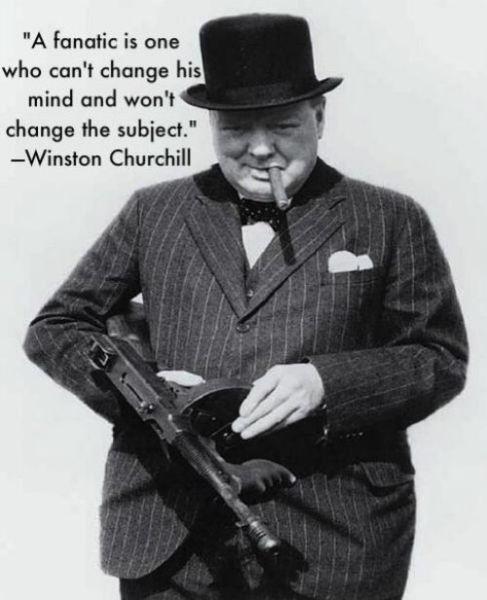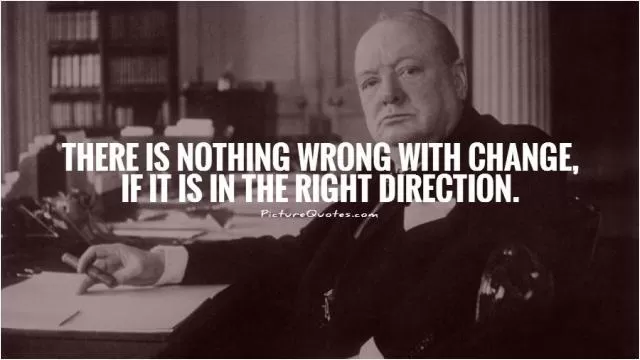A fanatic is one who can't change his mind and won't change the subject


A fanatic is one who can't change his mind and won't change the subject
Winston Churchill, the iconic British statesman and Prime Minister, was known for his unwavering determination and strong convictions. He was a man who never shied away from expressing his opinions, even when they were unpopular or controversial. Churchill was a true fanatic in the sense that he was someone who couldn't change his mind and wouldn't change the subject once he had made up his mind about something.Throughout his political career, Churchill was known for his steadfast beliefs and refusal to back down in the face of opposition. He was a fierce advocate for democracy, freedom, and the British Empire, and he was willing to fight tooth and nail to defend these principles. Churchill's famous speeches and writings are filled with passionate rhetoric and bold declarations of his beliefs, making it clear that he was a man who was deeply committed to his convictions.
One of the most famous examples of Churchill's fanaticism was his unwavering opposition to appeasement in the lead-up to World War II. While many of his contemporaries were advocating for a policy of appeasement towards Nazi Germany, Churchill stood firm in his belief that Hitler could not be trusted and that the only way to stop him was through force. Despite facing criticism and ridicule from his political opponents, Churchill refused to back down and continued to speak out against appeasement until his warnings were finally heeded.
Churchill's refusal to change his mind or the subject of his arguments was both a strength and a weakness. On the one hand, his unwavering commitment to his beliefs inspired others to follow his lead and gave him the strength to persevere in the face of adversity. On the other hand, his stubbornness could also be seen as a liability, as it sometimes led him to ignore alternative viewpoints and alienate potential allies.












 Friendship Quotes
Friendship Quotes Love Quotes
Love Quotes Life Quotes
Life Quotes Funny Quotes
Funny Quotes Motivational Quotes
Motivational Quotes Inspirational Quotes
Inspirational Quotes